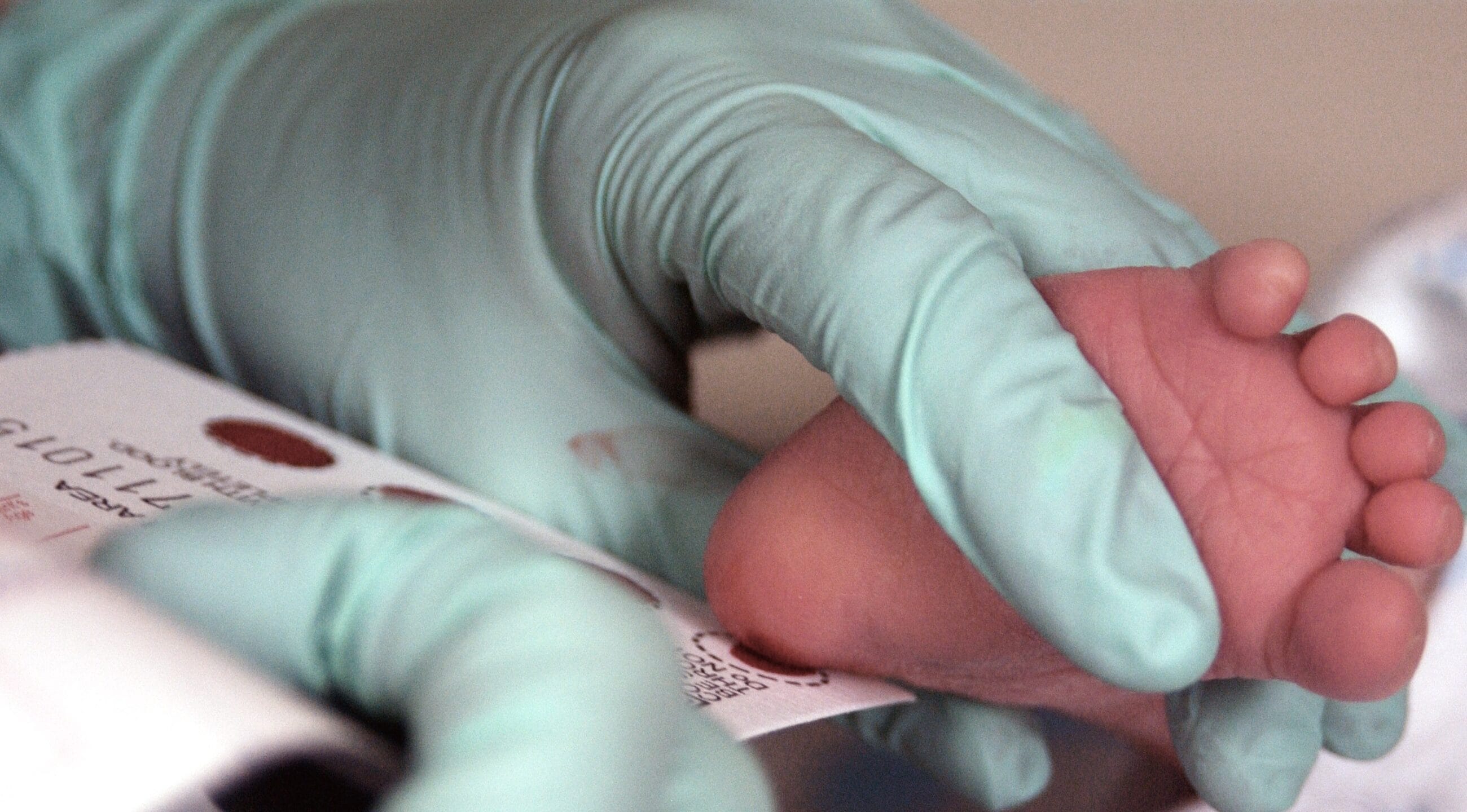Early health screening, especially for metabolic disorders, is crucial. This post covers the importance of early detection, common metabolic disorders, screening methods, and tips for maintaining metabolic health.
Whether you’re a parent, healthcare professional, or health-conscious individual, understanding these topics will help you make informed decisions about your wellness.
Why Early Detection Matters?
Health screenings are more than check-ups—they’re key to preventing complications from undiagnosed metabolic disorders through a comprehensive screening program.

Prevention Through Awareness
Conditions like diabetes, high cholesterol, and hypertension often develop silently. By the time symptoms show, damage may already be done. Early screenings for metabolic disease, including inborn errors of metabolism, help spot risk factors and allow for timely intervention.
Improved Health Outcomes
Catching metabolic disorders early makes treatment more effective. For example, managing prediabetes with lifestyle changes can prevent it from turning into Type 2 diabetes.
Empowering Proactive Health
A screening program provides clear insights into your health, helping you make informed decisions, take control, and feel confident about your well-being.
Common Inherited Metabolic Disorders
Inherited metabolic disorders are genetic conditions affecting how the body processes nutrients. Early identification through screening enables effective management, safeguarding long-term health and enhancing quality of life.
1. Phenylketonuria (PKU)

Phenylketonuria is caused by a lack of the enzyme needed to process phenylalanine, an amino acid in many protein-rich foods. Without treatment, it can lead to intellectual disability and other complications. Newborn screening and dietary management can prevent these issues and support normal development.
2. Maple Syrup Urine Disease (MSUD)

MSUD occurs when the body can’t break down certain amino acids due to an enzyme deficiency. It gets its name from the sweet-smelling urine of affected individuals. If untreated, it can cause neurological damage or death, but early intervention and a specialized diet reduce risks and improve quality of life.
3. Galactosemia

This disorder prevents the body from processing galactose, a sugar in milk and dairy. Excess galactose can damage organs like the liver, brain, and kidneys. Early screening and a galactose-free diet can effectively manage symptoms and improve outcomes.
4. Gaucher Disease

Gaucher disease is caused by a lack of the enzyme glucocerebrosidase, leading to fatty substance buildup in organs. Symptoms include an enlarged liver or spleen, bone problems, and fatigue. Early treatment, like enzyme replacement therapy, can improve symptoms and prognosis.
5. Medium-Chain Acyl-CoA Dehydrogenase Deficiency (MCADD)

MCADD affects the body’s ability to convert certain fats into energy, especially during fasting. Without treatment, it can cause low blood sugar, lethargy, or metabolic crises. Early diagnosis allows for simple dietary adjustments to manage the condition.
Newborn Screening for Metabolic Disorders
Newborn screening for metabolic disorders is a critical public health initiative aimed at identifying potentially serious conditions early in a child’s life. These screenings involve a simple blood test.

Usually performed within the first 24 to 48 hours after birth, to detect a range of metabolic or genetic abnormalities, including autosomal recessive disorders. These are a group of inherited disorders caused by inborn metabolic defects. Early detection through screening enables timely interventions.
Such as dietary modifications, medications, or other treatments, which can prevent severe complications and improve long-term health outcomes. Identifying these disorders early not only helps the affected infant but also provides families with reassurance and a clear path for managing their child’s health.
Physical Exam Methods
How can we detect these conditions? Modern medical advancements offer quick and efficient screenings for disease that can uncover vital health insights.
1. Types of Screening Tests
- Blood Glucose Test: Measures your blood sugar levels for diagnosing diabetes or prediabetes.
- Cholesterol Panel: Checks “good” HDL cholesterol, “bad” LDL cholesterol, and triglyceride levels.
- BMI (Body Mass Index) Assessments and Waist Measurements: Simple tools for detecting obesity, which is a significant metabolic risk factor.
- Blood Pressure Monitoring to quickly assess hypertension.
- Blood and Urine Tests: Useful for detecting glycogen storage disease and other conditions related to a group of disorders affecting metabolism.
2. What to Expect During Screening
Screening for disease is a straightforward process. At Mediway Medical in Singapore, screenings are conducted with minimal wait times, and we ensure your comfort every step of the way. Typically, it involves a quick blood draw, urine sample, and depending on the tests, monitoring your heart rate or taking physical measurements.
3. How Often to Get Screened
Generally:
- Adults over 40 should undergo screenings annually.
- For younger individuals, screenings every two years may suffice, depending on risk factors such as family history or lifestyle habits.
Screening can help identify different metabolic disorders, such as glycogen storage disease, and provide valuable insights for improving health.
Benefits of Early Intervention
When metabolic disorders are detected early, it unlocks a range of benefits that can ultimately improve your quality of life.

1. Slowing Disease Progression
Early treatment for conditions like diabetes or high cholesterol can delay or even prevent complications. For instance, prescribed medications and lifestyle adjustments can keep blood sugar and cholesterol levels in check.
2. Enhancing Quality of Life
By managing your condition proactively, you can continue living a fulfilling and active life—including enjoying time with family and maintaining career aspirations.
3. Reducing Long-Term Costs
Health screenings and early treatments are far more cost-effective than addressing advanced complications such as surgeries or long hospital stays.
Lifestyle Changes for Prevention
Preventing metabolic disorders isn’t just about interventions—it’s also about making sustainable lifestyle changes.

1. Prioritize a Balanced Diet
Eat fresh fruits, vegetables, lean proteins, and whole grains while avoiding excessive sugar, salt, and processed foods. Simple swaps, like replacing sugary beverages with water, can significantly reduce risks.
2. Stay Active
Aim for 150 minutes of moderate exercise (e.g., brisk walking, cycling) weekly. Physical activity regulates blood sugar, weight, and cholesterol, keeping your metabolism healthy.
3. Manage Stress
Chronic stress affects hormones and metabolism, contributing to conditions like hypertension. Explore relaxation techniques such as mindfulness, meditation, or even taking a walk outdoors.
4. Routine Screenings
Schedule regular health check-ups to monitor your progress and catch abnormalities early.
Take Charge of Your Health Today
With metabolic disorders becoming increasingly prevalent in Singapore, early screening is your best defense. Knowing your numbers—whether it’s blood sugar, cholesterol, or blood pressure—can make all the difference in living a healthier, happier life.
At Mediway Medical, we offer comprehensive health screenings tailored to your needs. If you’d like to schedule a screening or learn more about managing your metabolic health, feel free to book an appointment or reach out today.
Your health is our priority, and together, we can take the first steps toward better health.









